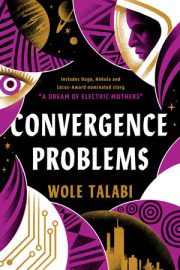Tidbits
Posted by Victoria Strauss for Writer Beware
Last October, I blogged about David Boyer, a self-styled author and publisher who was discovered to be committing extensive plagiarism, publishing stories and books both under his own name and his many aliases.
Despite being publicly exposed, generating quite a bit of online discussion, and inspiring an anti-plagiarism blog devoted largely to mocking him, Boyer did not, apparently, give up his borrowing ways. And he got ambitious. Not content with filching fiction from non-famous members of the horror community, he decided to plagiarize (using one of his aliases) someone really famous: Dean Koontz. For this, there may be consequences other than mere ridicule.
The evidence–including an excerpt from Koontz’s original story, an excerpt from the plagiarized version, and a letter from Koontz indicating that he’s considering legal action–can be found at The Horror Zine, along with a list of Boyer’s known aliases, and links to information and discussion about Boyer and his exploits.
Author Solutions Redux
I know that no one but me is paying attention to this trend any longer…but self-publishing mega-company Author Solutions, the world leader in inaccurate use of the term “indie publishing,” has expanded its list of publisher partnerships yet again with Inspiring Voices, a self-publishing service that it will run for magazine and book publisher Guideposts. Black and white printing packages (adorned, in keeping with Guideposts’ inspirational focus, with names such as “Exalt,” “Uplift,” and “Rejoice”) run from $699 to $6,999, and there’s the usual range of expensive marketing services.
I can’t help wondering at what point ASI will start to cannibalize itself. The exploding electronic self-publishing sector–which is cheap, relatively easy, and allows authors to control their pricing–is already starting to make costly POD self-publishing look a bit quaint. Clearly such services are still profitable (which is their main appeal for publishers)–but at some point a saturation point will be reached. Is ASI speeding the process by diluting their market with these partnership ventures?
Ebook Pricing Redux
I’ve talked a bit on this blog about the contentious issue of ebook pricing. Many commercial publishers are attempting to set ebook prices too high for consumers’ perception of value, while many electronic self-publishers are leveraging success with rock-bottom ebook prices. Consumers aren’t happy about overpriced ebooks–hence the angry one-star Amazon reviews for popular authors whose ebooks, thanks to the different pricing models for digital and paper, cost less than their hardcovers–but are the extreme lowball prices going too far in the other direction? Do people even bother to read the ebooks they snap up for 99 cents?
A couple of interesting articles this week address the pricing issue. Author Karen Dionne argues that 99-cent ebooks are a bad deal for authors:
Advocates for 99-cent e-books claim the low teaser price helps them gain new readers. But opponents worry that if readers come to expect the 99-cent price, it will no longer be effective as bait. Then what? they ask. Will authors start doing penny promotions in order to get their books noticed?
“Ask anybody who sells anything for a living: no business wins in a price war,” Cronin warns. “And that’s what we’re looking at right now.”
Or put another way, if authors don’t value their work, will readers?
Taking a slightly different perspective, editor Rich Adin argues that 99-cent ebooks do create sales–but with them, possibly, a false picture of success, for the simple reason that readers spending 99 cents on a self-published ebook may not be doing so because they think they’re going to love the book, but because 99 cents isn’t much to lose if they hate it.
[N]ongatekept authors whose ebooks sell well fail to distinguish between books sold and books read. This is an important distinction. Using myself as an example, I am willing to read an author’s description of their ebook and spend a maximum of 2 minutes reading the sample online, and then, if the blurb seems interesting and the 2-minute sampling doesn’t reveal horrendous errors, I am willing to buy the ebook for 99 cents…
I am willing to spend 99 cents for a nongatekept ebook because it is not much of an outlay — it’s like buying a lottery ticket; I am willing to gamble $1 on odds of 6 million to 1 but I am not willing to pay $5.99 for such an ebook because the risk of getting dreck is much too high.
When I posted this article to Writer Beware’s Facebook page, one reader quipped that he didn’t care if anyone read his book, as long as they bought it. But authors should care, because the reading–not the pricing–is what keeps people coming back.



